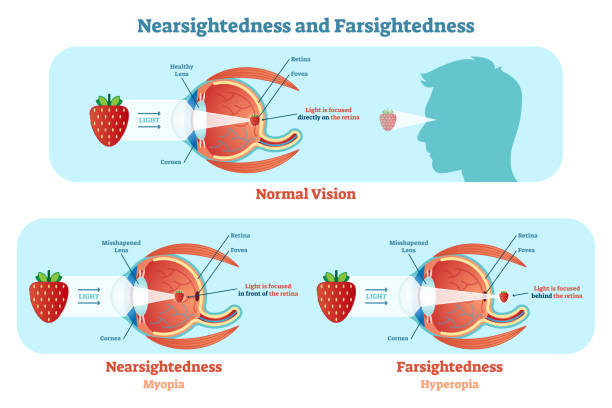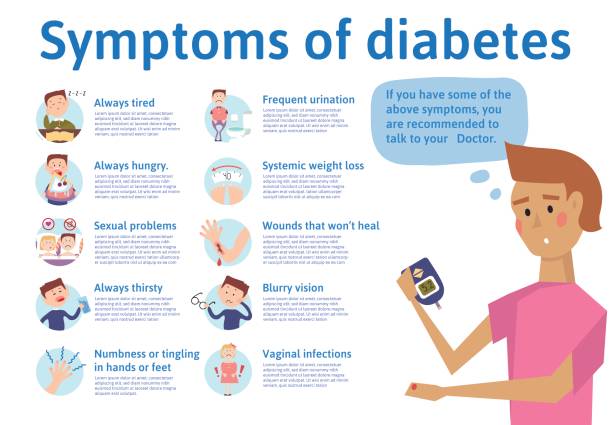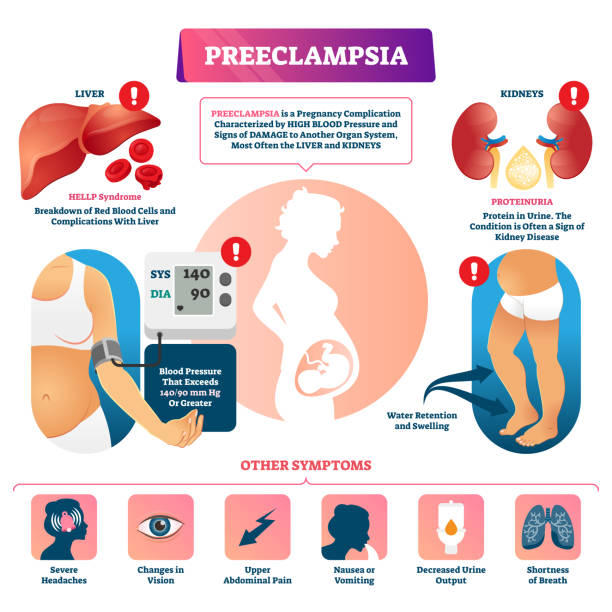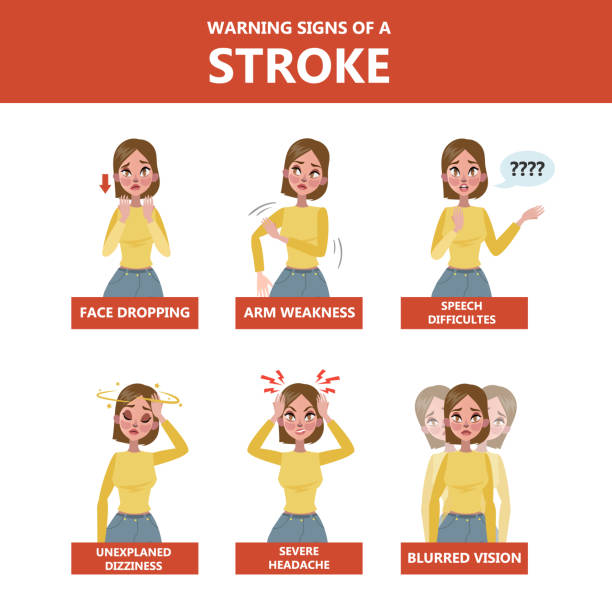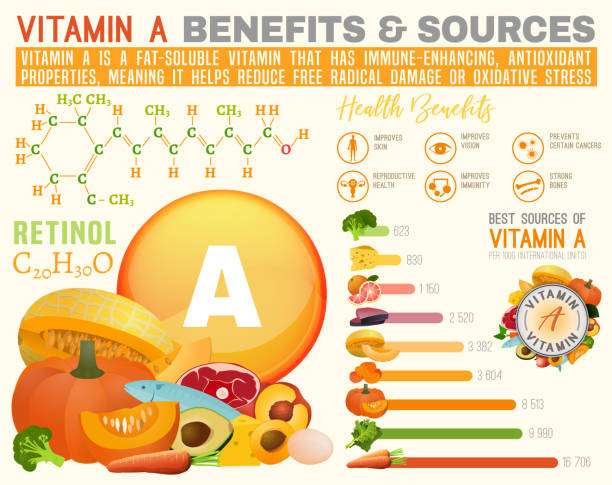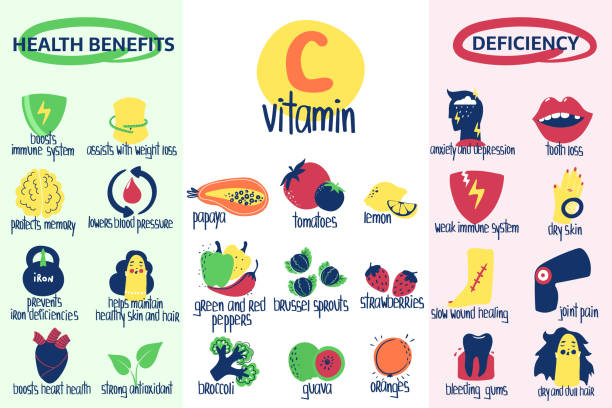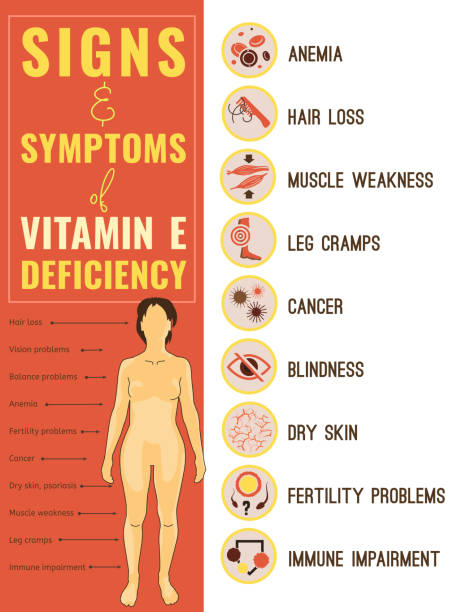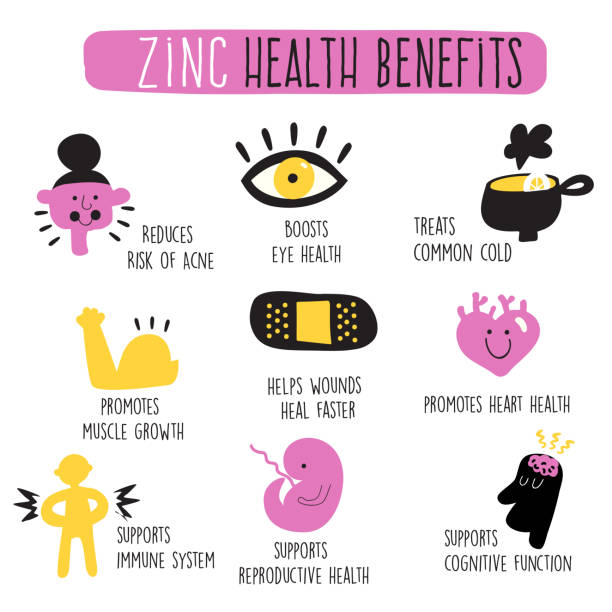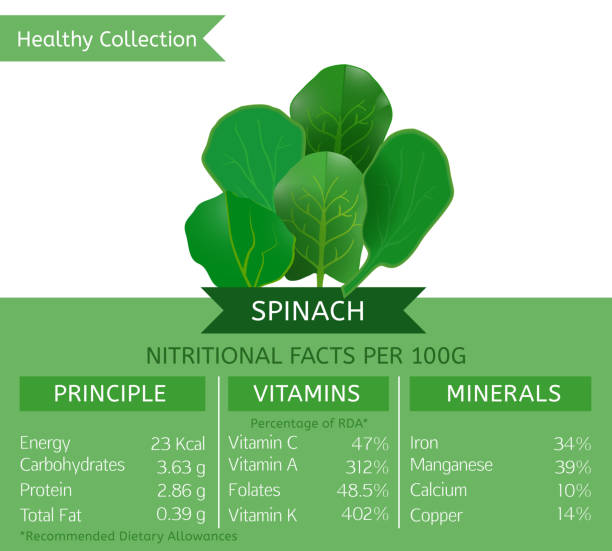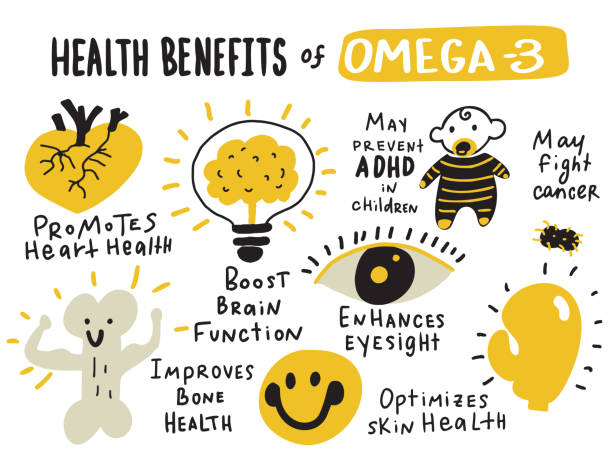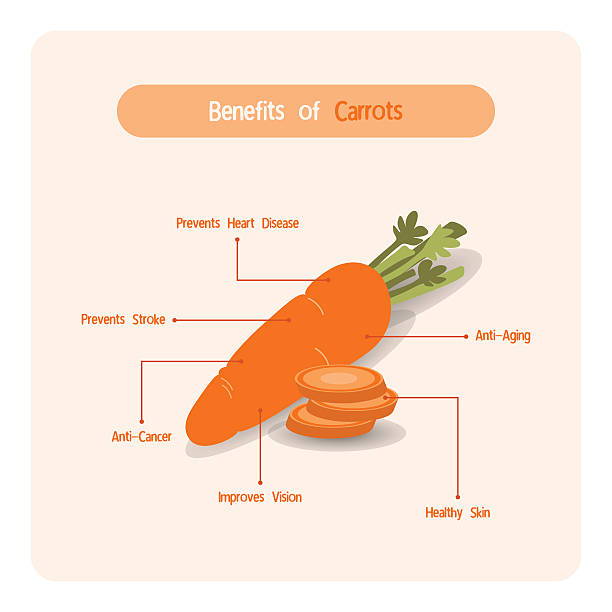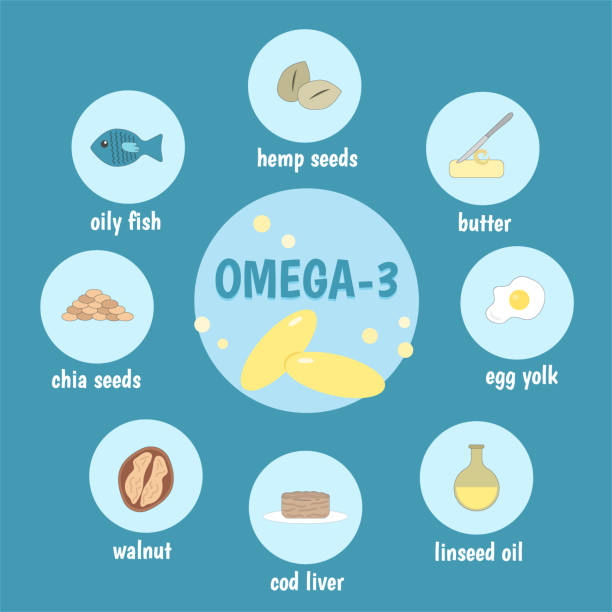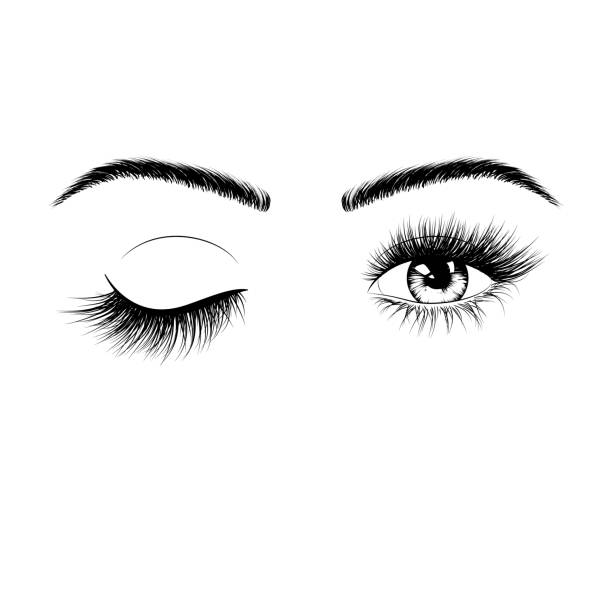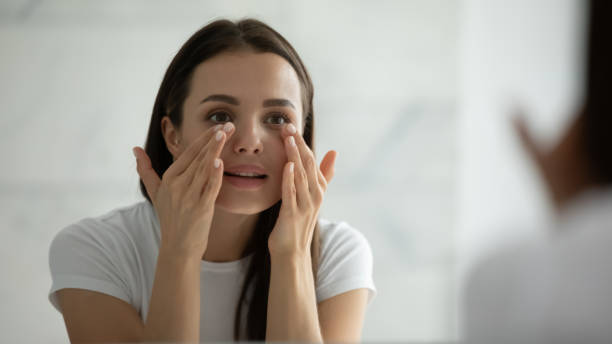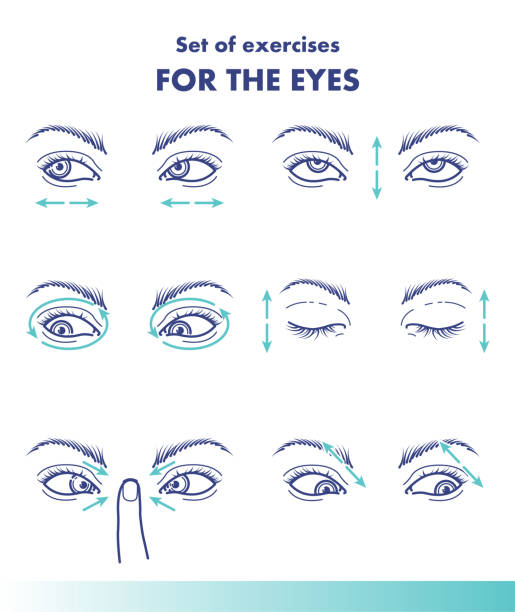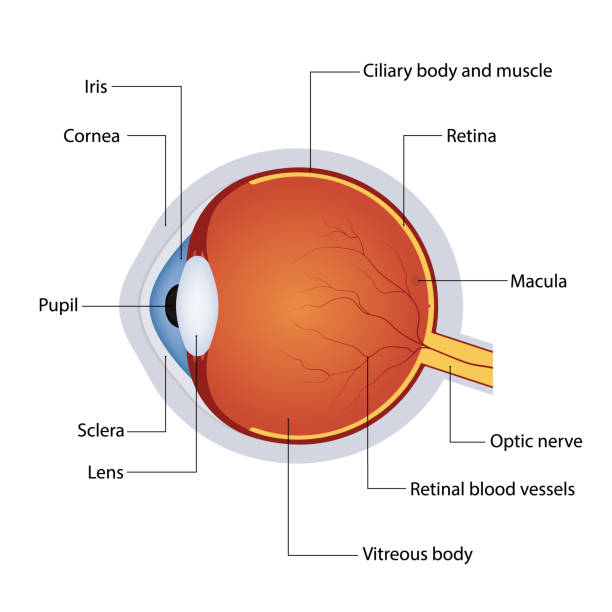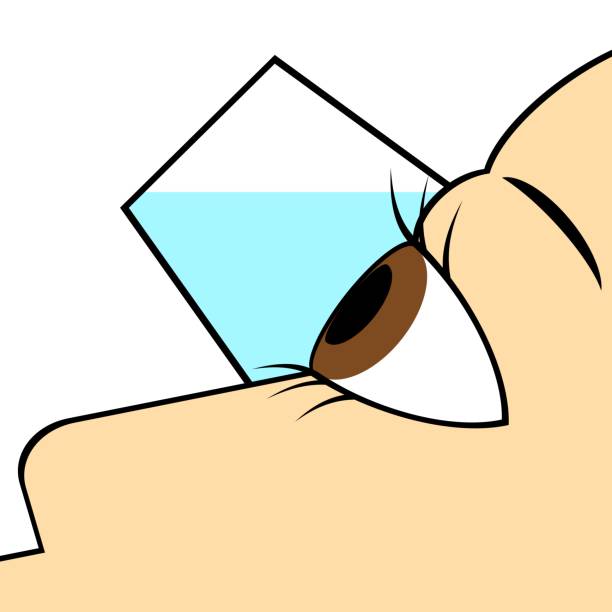Welcome to Fitness Deciphers…!!!
This is the most comprehensive guide on how to improve eyesight naturally at home.
Here, we will discuss the techniques which can help you improve your eyesight.
Are you one of them who has to find spectacles first in the morning?
Are you also tired of blurry vision?
If you also want to get rid of glasses, then this article is extremely important for you.
If you follow the methods mentioned in this article regularly, you will definitely be able to improve your eyesight at home.
This guide has helped thousands of people get rid of glasses. I hope this will help you too.
How to Improve Eyesight Naturally at Home
In this article, I will tell you how to improve eyesight naturally at home. Here we will discuss,
- Causes of Blurred vision
- Vitamins and Minerals needed to improve eyesight
- Foods to improve eyesight
- Exercises to improve eyesight naturally at home
- Acupressure to improve eyesight
- Other tips to improve eyesight naturally
Let’s start.
Causes of Blurred Vision
The eyes are the most important organs of the body.
In fact, the eye is the most developed sensory organ connected with the brain to compute the image from signals sent by the lens through the optic nerve.
Do you know, a large part of the brain is dedicated to vision.
When there is something wrong with sending the signals, our brains can’t compute the right image and our vision gets blurred.
Blurry vision can be temporary or permanent depending upon its cause.
There are many reasons behind blurred vision.
1) Misadjustment of Optic Muscles
One of the most common causes of blurred or defective vision is the misadjustment of optic muscles that hold the eyeball and cause refraction errors.
It tends to cause nearsightedness, farsightedness, and astigmatism.
Though these cause blurry vision, the whole eye unit remains healthy. In the USA, 20-50% of people have been affected by it.
We will discuss the ways to get rid of it and improve eyesight naturally in detail in this article.
The image shows farsightedness and nearsightedness errors in our eyes.
2) Eye Diseases
Other eye-related problems such as
- Dry eyes,
- Scratched cornea,
- Retinal detachment,
- Macular degeneration,
- Cataracts
- Glaucoma
can also be the reason for blurred or defective vision.
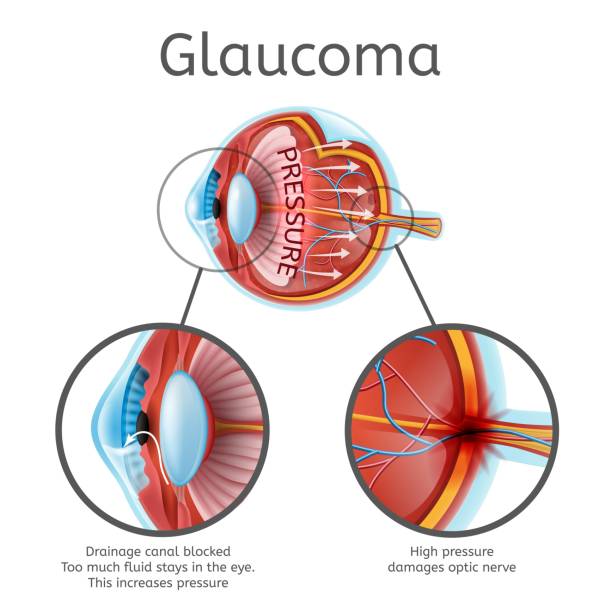
3) Certain Physiological Conditions
Certain physiological conditions such as diabetes, hunger, and dehydration can also cause defective vision.
4) Pregnancy
Pregnancy can also be the reason behind blurry vision in many females. It is due to the oversaturation of estrogen receptors in the lens.
If this is the only reason behind the blurred vision then you can take it lightly.
5) Preeclampsia
Preeclampsia can be the cause of blurred vision during pregnancy. It can be a dangerous situation and have life-threatening effects on you as well as on your baby.
Preeclampsia doesn’t cause any symptoms. Only blurred images and other sight-related problems are the clues to decide that you are suffering from it.
6) Brain-related problems
It is because the final processing of any image takes place inside the brain. If your brain is suffering from any disease then it is possible that your vision gets blurred.
We can’t say that blurred vision is the first symptom of brain problems.
But if you have brain problems then it can also affect your vision. It is because some brain problems can change how the eyes move.
Read our other Gems too:
One of the brain-related problems called brain tumors can also cause blurred vision. It builds pressure inside the skull that causes many problems including blurred vision.
Blurred vision or double vision is also one of the key signs of stroke.
7) Multiple Sclerosis
Multiple Sclerosis causes inflammation along the optic nerve that connects the eyes to the brain.
It causes a condition called optic neuritis, which can give blurry sight, loss of color vision, and pain during the movement of the eyes.
It often happens in just one eye.
Vision blurring can be the earliest symptom of Multiple Sclerosis.
8) Psoriasis
Psoriasis can also be the cause of blurred vision.
It may cause a condition called uveitis in which swelling causes s blurred vision, redness, pain, and sensitivity to light.
Here we have discussed the causes of blurred vision.
Now we will move on to discuss how to improve eyesight naturally at home.
For that, we have two ways. (excluding laser surgeries)
The first is to consume foods that improve eye vision such as certain fruits, dry fruits, vegetables, eyesight increasing juices, etc.
The second way is to do certain exercises that have been proven to improve eyesight.
We will discuss both of them one by one.

Here you have to remember that consuming foods that are beneficial to eye health and doing exercises can give you results but it takes time.
It is not like you start consuming foods and doing exercises and get a clear vision in a week.
No, it doesn’t work like that.
It will take months to get the required result. What you have to do is be consistent and persistent. Have faith in the natural process.
Read our other Gems too:
How to improve eyesight naturally at home
Two best natural methods,
- Consume foods that are rich in such vitamins and minerals that our eyes need
- Do regular eye exercises to improve eye vision
Vitamins and minerals needed to improve eyesight naturally
Some vitamins, minerals, carotenoids, and essential fatty acids directly and some indirectly affect eye health.
When the retina and lens suffer from oxidative damage, the anti-oxidant vitamins such as vitamin A, C, and E are beneficial.
Inadequate intake of vitamins may cause cataracts in elderly people. Zinc plays an important role in retinal metabolism.
Omega-3 fatty acids are very important for retinal development. Selenium plays the role of an antioxidant.
Carotenoids play the role of antioxidants and are concentrated at the macula.
Read our other Gems too:
1) Vitamin A
Vitamin A is a fat-soluble vitamin necessary for the formation of retinal photoreceptor pigments.
It clears the cornea. The cornea is the outside covering of the eye.
It has antioxidant properties so it can prevent our eyes from oxidative damage due to free radicals in our eyes.
The deficiency of vitamin A can cause the night vision defect.
It is very important to check whether your body absorbs vitamin A or not.
Because it is found in many people suffering from vitamin A deficiency that they are taking enough vitamin A but their bodies are not able to absorb it due to gastro-intestinal derangement.
There are two types of vitamin A. The first is “Preformed vitamin A” which is commonly found in meat, poultry, fish, and dairy products.
The second type is called “Provitamin A” which is commonly found in fruits, vegetables, and other plant-based products.
Beta-carotene is the most common type of provitamin A.
Studies also show that if you intake a diet high in vitamin A, you have a lesser chance to have cataracts and macular degeneration.
The prolonged vitamin A deficiency can result in dry eyes that eventually turn into irreversible blindness.
How much Vitamin A do you need?
It depends on your age and gender.
- Birth to 6 months —— 400 mcg RAE
- Infants 7–12 months —- 500 mcg RAE
- Children 1–3 years ——-300 mcg RAE
- Children 4–8 years ——-400 mcg RAE
- Children 9–13 years——-600 mcg RAE
- Teen boys 14–18 years—-900 mcg RAE
- Teen girls 14–18 years—-700 mcg RAE
- Adult men——————900 mcg RAE
- Adult women—————700 mcg RAE
- Pregnant teens————-750 mcg RAE
- Pregnant women———–770 mcg RAE
- Breastfeeding women—–1,300 mcg RAE
(Source – https://ods.od.nih.gov/)
If you want to improve eyesight naturally at home then you have to ensure the optimal levels of vitamin A in your body.
If you are not getting it from the diet then you can use supplements.
( I only recommend getting vitamin A from diet only)
Foods such as carrots, sweet potatoes, green leafy vegetables contain a high amount of vitamin A. (scroll down to know more foods that contain vitamin A)
But never exceed the consumption then recommendation. Excess consumption of vitamin A can cause nausea, dizziness, headache, and even coma.
Read our other Gems too:
Vitamin C
It is a water-soluble vitamin also known as ascorbic acid. Just like vitamin A, it has also antioxidant properties. That means it can save our eyes from oxidative damage due to free radicals as mentioned above.
Vitamin C also helps you increase the immunity of your body. The high immune body is less likely to suffer from any diseases.
Our bodies also need vitamin C to produce collagen which is a protein that provides the structure to our eyes.
It also decreases our susceptibility to UV-induced cataracts. It also decreases the risk of diabetes patients suffering from cataracts.
How much vitamin C do you need?
- Birth to 6 months———40 mg
- Infants 7–12 months——50 mg
- Children 1–3 years——–15 mg
- Children 4–8 years——–25 mg
- Children 9–13 years——-45 mg
- Teens 14–18 years (boys)-75 mg
- Teens 14–18 years (girls)-65 mg
- Adults (men)—————90 mg
- Adults (women)————75 mg
- Pregnant teens————-80 mg
- Pregnant women———–85 mg
- Breastfeeding women——120 mg
(Source – https://ods.od.nih.gov/)
If you want to increase eye vision then you will have to maintain the optimal levels of vitamin C in your body.
Citrus fruits including guava, orange, kiwi, etc contain lots of vitamin C in them.
3) Vitamin E
It is a fat-soluble vitamin. Just like vitamin A and C, it has also antioxidant properties. So it can also save our eyes from the oxidative damage caused by the free radicals in our bodies.
It is also helpful in increasing the immunity of the body so that it can fight against diseases.
The below image shows the signs of vitamin E deficiency.
How much Vitamin E do you need?
- Birth to 6 months——————–4 mg
- Infants 7–12 months—————–5 mg
- Children 1–3 years——————-6 mg
- Children 4–8 years——————-7 mg
- Children 9–13 years——————11 mg
- Teens 14–18 years——————–15 mg
- Adults———————————-15 mg
- Pregnant teens and women———-15 mg
- Breastfeeding teens and women—–19 mg
(Source – https://ods.od.nih.gov/)
Ensure optimal levels of vitamin E to improve eyesight naturally at home.
Almonds, salmon, olive oil, banana, eggs, etc are the best-known source of vitamin E.
4) Vitamin B ( B1, B2, B3, B6, B12)
B vitamins are necessary to maintain the optic nerve function.
They can also decrease the risk of inflammation which can become the cause of AMD (Age-related Macular Degeneration)
If you want to improve eyesight naturally then you have to ensure vitamin B levels in your body.
The below image shows the benefits of vitamin B.
5) Zinc
It plays an important role in retinal metabolism. Zinc is also the main component of many enzymes which makes it the most important mineral.
Retina and choroid also contain the highest levels of zinc in the body. That makes zinc very important for the eyes.
Zinc also has an interaction with vitamin A in the production of the visual pigments of the retina.
Even if your body has enough levels of vitamin A, you can suffer from night blindness if you don’t have enough zinc in your body.
Like the vitamins A, E and C, zinc also has antioxidant properties. It also protects the eyes from the oxidative damage caused by the free radicals.
The below image shows the sources and benefits of zinc.
Zinc also helps in maintaining the health of the lens of the eyes.
When the mineral levels of the person who was in the beginning phase of the cataract were checked, zinc and copper were found below and all the other minerals were present there in enough amounts.
Zinc is naturally available in meat, eggs, seafood, peanut, etc.
If you take the high fiber diet then it can lower the absorption of zinc. That’s unfortunate but true…!!!
Read our other Gems too:
Zinc is noncumulative and is toxic if consumed in excess amounts. You can consume 20 mg of zinc.
If you take zinc supplements then also take copper supplements because zinc supplements can lower copper levels.
That’s why many zinc supplements contain copper.
So if you want to improve eyesight naturally at home, your next biggest priority will be to ensure the optimal levels of zinc in your body.
6) Selenium
Selenium also has antioxidant properties. So it can recover eyes from oxidative damage caused by free radicals in our bodies.
Selenium is also a main component of many enzymes that are present in the micro-organism.
The excess consumption of selenium can be toxic for the body.
According to the Food and Nutrition Board of the National Academy of Sciences of the USA, the healthy range for selenium consumption for adults is 50-200 micrograms per day.
In the United Kingdom, the recommended range is 60-75 micrograms per day.
Seafood, meat, cereals, and dairy products are good sources of selenium.
Ensure the optimal levels of selenium if you want to improve eyesight naturally at home.
7) Carotenoids
Carotenoids are the essential nutrients for eye health. They have the potential to improve your eyesight.
Carotenoids are yellow pigments that are especially found in colored fruits and vegetables.
They are concentrated in the retina. These pigments improve the visual image by absorbing blue light.
Carotenoids also tend to protect the macula from the damage of free radicals just like antioxidant vitamins and minerals.
Carotenoids, particularly lutein and zeaxanthin reduce the risk of macular degeneration.
The carotenoid level is also found low in patients with cataracts. Spinach is a good source of lutein and vitamin E. So eating spinach can be beneficial for cataracts.
8) Omega-3 fatty acids
Omega-3 fatty acids are important for the normal development of the eyes.
It is also important for the proper functioning of the retina at all ages. That’s why we are said to eat fish or fish oil every day.
In many countries like India, fish pickle is very famous and it is said that if you consume that regularly then you won’t have to wear glass ever.
Here we have discussed all the vitamins and minerals that are needed for the healthy functioning of the eyes.
If we ensure all these vitamins and minerals then we can definitely improve eyesight naturally at home.
The health benefits of omega-3 are shown below.
Now we will discuss what foods we have to consume so that we can get all the mentioned vitamins and minerals.
It is because here we are discussing how to improve eyesight naturally at home.
So we have to consume these vitamins and minerals from the food cooked in our kitchen.
Foods to Improve eyesight naturally
It is easy to make a list of foods that are needed for good eyesight.
How?
Just make the list of foods in which you get the above-mentioned vitamins and minerals.
Foods containing Vitamin A
- Liver (richest food source of preformed vitamin A)
- Sweet potato
- Bitter gourd
- Carrot (richest source of provitamin A carotenoids)
- Pumpkins
- Cantaloupe
- Red pepper
- Tomato
- Drumstick leaves
- Amaranth
- Kale
- Garden rocket
- Chicory
- Wild rocket
- Dandelion
- Onion leaf
- Spinach
- Coriander
- Lettuce
- Broccoli
- Apricot
- Mango
- Persimmon
- Dates
- Guava
- Red grapefruit
- Papaya
- Cereals
- Maize
- Basil
- Dill
- Marigold flowers
- Spirulina
- Red palm oil
Consume these foods rich in vitamin A to improve eyesight naturally at home.
The below image shows the sources of vitamin A.
Read our other Gems too:
Foods containing Vitamin C
- Black currant
- Kiwi
- Strawberry
- Orange
- Lemon
- Apple
- Pear
- Broccoli
- Kale
- Pepper
- Potato
- Tomato
- Sauerkraut
- Sea buckthorn
- Rosehip
- Coriander
- Chives
- Parsley
Consume these vitamin C-rich foods to improve eyesight naturally at home.
Foods containing Vitamin E
- Almonds
- Fish
- Soyabean oil
- Whole grains
- Wheat germ
- Corn Oil
- Olive oil
- Spinach
- Broccoli
- Sunflower and safflower oils (Richest source of vitamin E)
- Peanuts and hazelnuts
- Sunflower seeds
- Other foods fortified with vitamin E
Consume these foods rich in vitamin E to improve eyesight naturally at home.
The below images shows the sources of vitamin E.
Foods containing Vitamin B complex
For B1 ( Thiamine)
- Cereals
- Brown rice
- Potatoes
- Liver
- Pork
- Eggs
- Green vegetables
For B2 ( Riboflavin)
- Dairy products
- Leafy vegetables
- Liver
- Legumes
- Mushrooms
- Yeast
For B3 ( Niacin)
- Meat
- Fish
- Whole grains
- Cereals
- Legumes
- Mushrooms
- Nuts
For B5 ( Pantothenic acid)
- Meat
- Whole grains
- Cereals
- Broccoli
For B6 (Pyridoxal)
- Meat
- Fish
- Legumes
- Nuts
- Bananas
- Potatoes
For B7 (Biotin)
- Eggs
- Liver
- Pork
- Leafy vegetables
For B9 ( Folic acid/folate)
- Leafy vegetables
- Legumes
- Citrus fruits
For B12 ( Cobalamins)
- Meat
- Flax seeds
- Fish
- Other animal products
Consume these foods rich in vitamin B complex to improve eyesight naturally at home.
Foods containing zinc
- Oysters (The best source of zinc)
- Red meat
- Poultry
- Seafood ( crab and lobsters)
- Nuts
- Fortified cereals
- Beans
- Whole grains
- Dairy products
- Spinach
- Pumpkin seeds
- Cashew
Consume these zinc-rich foods to improve eyesight naturally at home.
Foods containing Selenium
- Tuna
- Potatoes
- alfalfa
- Barley
- Oat
- Wheat
- Bread
- Cereals
- Chicken
- Mushrooms
- Brown rice
- Oysters
- Sunflower seeds
Consume these selenium-rich foods to improve eyesight naturally at home.
Read our other Gems too:
Foods containing Carotenoids
- Carrot
- Spinach
- Broccoli
- Lettuce
- Mango
- Papaya
- Tomato
- Sweet corn
- Watermelon
- Apricot
- Red pepper
- Orange
- Mandarin
- Green peas
- Watercress
Consume these carotenoid-rich foods to improve eyesight naturally at home.
The below image shows the benefits of carrots.
Foods containing Omega-3 fatty acids
- Cold-water fatty fish ( such as Salmon, mackerel, tuna, herring, and sardines)
- Flax seeds
- Chia seeds
- Walnuts
- Canola oil
- Soybean oil
- Flaxseed oil
- Some eggs, juices, milk are also fortified with omega-3
Consume these omega-3 rich foods to improve eyesight naturally at home.
Here, we have discussed almost all the foods that contain all the required vitamins and minerals to improve eyesight naturally.
If you include them in your regular diet you will see a drastic improvement in your vision.
Exercises to improve eyesight naturally at home
1) Sunning
Sunning is one of the best exercises to increase eyesight. It can also treat insomnia.
If you are sensitive to sunlight then do this exercise early in the morning or near dusk when the intensity of light is low.
How to do Sunning?
- Close your eyes and face the sun
- Then rotate your head side to side and shoulder to shoulder (180 degrees)
- Movement should not be too fast or too slow
- Your eyelids must be closed softly ( don’t squeeze)
- If it is difficult for you to rotate your head 180 degrees then bring your opposite shoulder slightly forward
When you face the sun, your pupil contract, and then it expands as you rotate your face.
This exercise is compulsory for those who want to improve eyesight naturally at home.
This is the first exercise that I recommend to people who ask me how to improve vision naturally at home
When you experience extreme dark and extreme light, your pupil becomes stronger. It is because iris muscles get stronger.
Due to contraction and expansion, blood flow through the retina also increases which can improve our eye vision.
Read our other Gems too:
2) Looking to a far distance
When you look near ( staring computer screen or reading books), your eyes get strained. It is because your ciliary muscles of the eyes contract that changes the shape of the lens from flat to round.
When you look at a far distance (not closer than 40 yards), your ciliary muscles get relaxed. That makes the shape of the lens flat.
Remember, when you look at a far distance, never stay focused on one point.
Look at different areas there. Also, remember to blink.
I don’t know if you know this or not but this exercise can also be useful to prevent cataracts.
3) Night walking
Walking in the dark, with only the light of the moon can strengthen our eyes. Night walking of at least fifteen minutes can expand your pupil to nine times its normal size a day.
You can also perform many other eye exercises such as long swinging at night time. It is because you can use the full potential of your eyes at night.
4) Palming
Sleep provides relaxation to our eyes, palming also does the same. It provides relaxation to the stiffed eye muscles.
- Rub your palms together to warm them
- Place both palms very gently on the eyes without applying any pressure
- Repeat it several times
Palming is great for refractive errors.
5) Blinking
Blinking is also a great exercise to improve eyesight. Blinking is necessary to purify and moisten the eyes.
It is also a good exercise for dry eyes or tired eyes.
You have to make sure to blink once every 1-3 seconds but with ease.
You can also do blinking exercises.
Method :
- Blink quickly for 6-10 times
- Then close your eyes
- Again blink quickly 10-20 times
- Then again close your eyes for a few seconds
This exercise is independent of time and place. You can perform it anywhere and anytime.
There is a variant of this exercise in which you close one of your eyes and start blinking the other one quickly.
Then perform the same exercise for another eye.
6) Eye Massage
Eye massage (around the eyeballs) improves the flow of energy through the eyeballs and the head.
You have to perform this exercise using your thumb or index finger depending upon your ease of pressurizing on these points.
Massage gently.
7) Eye movement exercise
You have to move your eyes as shown in the below image.
8) In and out exercise for eyes (Also known as near and far focus)
This exercise is also great for improving aging vision (vision loss at the near point).
In and out exercise is extremely beneficial to stimulating and strengthening the ciliary muscles. Ciliary muscles are responsible for expanding and contracting the lens to focus on an object.
Take a pencil tip that you can focus on from a couple of inches away also, take a big object like a picture that you can focus on from at least 10-20 feet away without your glasses.
Hold the pencil tip a couple of inches from your face at eye level and focus on it.
Then shift your focus to the big picture that you have picked to focus on. Adjust your focus.
Then again quickly shift your focus to the pencil tip and again adjust your vision.
Repeat this exercise multiple times.
You can also use both of your eyes as well as one of your eyes and do it alternatively.
Doing this exercise for each eye can increase its effectiveness.
9) Pencil push-ups
This exercise is also great for stimulating and strengthening the ciliary muscles.
to perform this exercise, hold a pencil at your arm’s length. Focus on the tip of the pencil.
Then slowly move the pencil towards your nose keeping the tip of the pencil focused. Repeat this exercise several times.
Pencil push-ups, and in & out, exercises are considered great to improve eyesight naturally at home.
10) Scanning
It increases the flexibility of your eye muscles.
Sit at the one end of a room and let your eyes scan around the edges of things in the room—clock, doors, etc
11) Relaxation using an eyewash cup
We use our eyes all day. So they also get tired. They need relaxation.
Washing eyes with an eyewash cup is best for this purpose.
First, wash your eyes with normal clean water. Then fill 50% of the eyewash cup with rose water and the other 50% with normal water.
Then use the eyewash cup as shown below.
Wash your both eyes like this.
But remember to use 100% pure rose water.
Acupressure to improve eyesight naturally at home
I don’t think there is a single person here who hasn’t heard about the acupressure.
Acupressure can also be useful to treat poor vision. To learn the acupressure technique for eyesight we need a separate article. But here we will have some glimpse of it.
In acupressure, we use our fingers to press acupressure nodes on our skin to stimulate the body’s natural self-curative abilities.
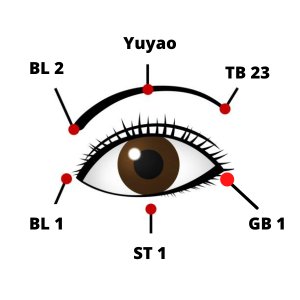
When these nodes are stimulated, blood circulation to that part increases, and muscles get relaxed.
The main advantage of this technique is you just need your hands and you can do it anytime and anywhere.
The points shown in the above image have special functions. When they are stimulated, the blood circulation through the eyes increases.
These nodes can be stimulated by massaging them using the thumb or index finger, microcurrent Stimulation, and essential oil application.
Read our other Gems too:
Other tips to improve eyesight naturally at home
1) Put two or three drops of the eucalyptus oil or menthol crystal in the boiling water. Cover your head with a towel and let vapor strike your face and keep blinking.
2) Darken your room completely while sleeping.
3) Avoid sleeping in the daytime.
4) Put cotton pads soaked with cold water on your eyes.
5) To ensure clear eyesight, massage your feet with ginger oil regularly.
6) Bath with cold or warm water. Avoid bathing with hot water as hot water on the head decreases eyesight. ( Due to circulatory disturbance)
7) Avoid excess consumption of alcohol
8) While washing your face, fill your mouth with water and then splash water on the face. This will expand your eye muscles more. And your eyes will get clean.
9) Massage your head with medicated oils.
10) Walking on irregular surfaces can also weaken your eyes.
11) Use an umbrella to avoid excessive heat, dust, and light.
12) Have sound sleep. As eyes regain their functional capacity while sleeping.
13) Drink carrot juice, Indian gooseberry juice, spinach juice more.
14) Practice Bhramari pranayama regularly.
Conclusion
Here we have discussed how to improve eyesight naturally at home in detail.
Remember that there are many reasons behind blurred vision. But if it is due to a refractive error then you can improve your sight with the above steps.
In the USA and many other countries, a refractive error has become common. It doesn’t cause any harm to you and just makes you wear glasses but it is still a weakness.
Medical science has developed so much that you can treat refractive errors such as farsightedness and nearsightedness in just 15 minutes with the help of laser surgeries.
But if you want to approach a natural way then this guide can help you with that.
The main problem with the natural way is it takes time. You can’t improve your vision in just a few days. It can take even months.
But the results are amazing and everlasting.
If you like this article share it with your friends.
